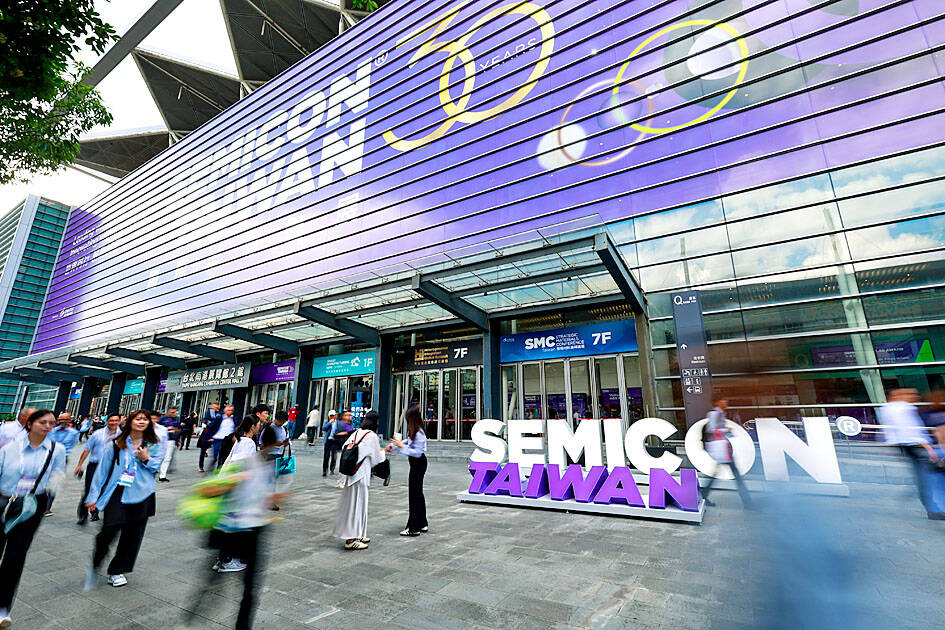‘Strategic Resources’: Taiwan’s Diplomatic Push Through Technology
By Ben Blanchard / Reuters
As global semiconductor leaders gathered in Taipei for the Semicon Taiwan trade show, one theme resonated throughout the events—Taiwan’s dynamic use of its semiconductor supremacy as a diplomatic tool.
In recent years, Taiwan has become increasingly aware of the geopolitical landscape surrounding its technological assets. The island is home to Taiwan Semiconductor Manufacturing Co. (TSMC), the world’s largest contract chipmaker, and a critical player in the semiconductor industry. Despite its technological prowess, Taiwan finds itself diplomatically isolated due to China’s sovereignty claims, which discourage most countries from forming formal diplomatic ties with Taipei.
A Geopolitical Stage for Semiconductors
During the trade show, a notable shift was evident in the discussions surrounding semiconductors and artificial intelligence (AI). Taiwan’s Minister of Foreign Affairs, Lin Chia-lung, emphasized that semiconductors and AI have emerged as “strategic resources.” This recognition signifies a growing acknowledgment that technology can play a pivotal role in international relations.
Lin stated, “We firmly believe that only by working with Taiwan can the free world create trusted non-red supply chains.” This comment underlines Taiwan’s intent to reshape global supply chains by encouraging partners to move away from reliance on China, which is increasingly viewed as a geopolitical risk.
Building Alliances with ‘Like-Minded’ Democracies
Taiwan’s strategy involves forging closer ties with other democracies, especially in central and eastern Europe. The ongoing war in Ukraine has heightened awareness of authoritarian threats, thereby strengthening the bonds that Taiwan aims to build with nations that share its democratic values.
At Semicon, President William Lai met with Czech Minister for Science, Research, and Innovation, Marek Zenisek. Zenisek noted the shared values of democracy, freedom, and openness between the two nations, pointing out that these values are under considerable pressure globally, making their partnership feel organic and necessary.
Czech Republic is positioning itself as an ideal collaborator for TSMC’s first European factory, currently under construction in Germany’s Dresden. This collaboration exemplifies Taiwan’s strategic efforts to utilize its technological edge to deepen international relationships.
Expanding Diplomatic Horizons
Interestingly, the Semicon Taiwan event wasn’t exclusive to traditional partners. For the first time, Costa Rica attended the trade show, a country that had switched its diplomatic relations from Taiwan to China back in 2007. The Costa Rican delegation, however, declined to provide commentary, leaving observers curious about the nation’s motives for its attendance.
Moreover, a delegation from Africa made an appearance, consisting of ten technology entrepreneurs from the French-African Foundation. With Africa largely under China’s diplomatic and economic thumb, Taiwan’s involvement is viewed as an opportunity. Joelle Itoua Owona, CEO of AfriWell Health, emphasized that African governments are eager to diversify their partnerships.
Owona remarked, “Taiwan is an additional friend,” representing a significant shift in how African nations view their alliances. This perspective hints at an emerging interest in collaborating with Taiwan, leading to a more balanced global technological landscape.
The Broader Implications
As the semiconductor industry continues to grow in importance, Taiwan’s diplomatic moves may well reshape the contours of international relations, particularly in the technology sector. Taiwan’s commitment to building alliances with democracies, especially in light of increasing pressures from authoritarian regimes, places it in a unique position as a beacon of democratic values.
By leveraging its technological superiority, Taiwan is not only securing its own standing in the world but also contributing to the formation of a new collective front. The implications of such diplomatic strategies could lead to a more significant shift in global alliances, particularly as nations seek partners that align with their own values of freedom and democracy.
In a world increasingly driven by technology, Taiwan’s stance as a leading semiconductor hub is transforming its diplomatic initiatives into strategic opportunities, with far-reaching effects on global relations.



